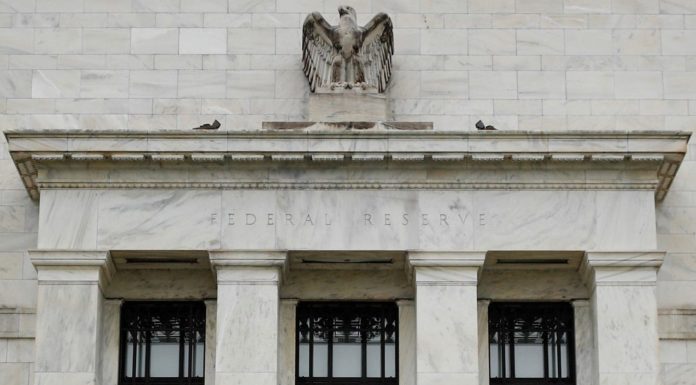(Associated Press) Judy Shelton, President Donald Trump’s controversial nominee to the Federal Reserve, faces a razor-thin confirmation tally on Tuesday as the Republican-controlled Senate continues to focus its energies in the lame-duck session on confirming Trump’s appointees.
Shelton is an unusually caustic critic of the Fed and is opposed by three GOP senators. Expected absences from two GOP senators who support Shelton could block her from advancing in Tuesday’s vote. Vice President-elect Kamala Harris, D-Calif., did not vote in an earlier Senate tally, but if she returns for the vote on Shelton, the nomination could fail.
The situation is further complicated because Senator-elect Mark Kelly, D-Ariz., is set to join the Senate when the chamber returns from its Thanksgiving break. That could leave Shelton short of support for confirmation if Majority Leader Mitch McConnell, R-Ky., seeks a revote next month.
Shelton, a conservative economics commentator, is opposed by Senate Democrats, most economists, and many former Fed officials for her past support of the gold standard and for writings that questioned the Fed’s political independence.
Under the gold standard, the U.S. dollar’s value is tied to gold. Under that approach, the Fed has had less leeway to adjust interest rates, even in a severe recession.
Shelton was approved by the Senate Finance Committee on a 13-12 party-line vote in July. Senate Democrats criticized her for appearing to flip-flop on many positions, including near-zero interest rates. She opposed ultra-low rates during President Barack Obama’s presidency but supported them after President Donald Trump took office and demanded that the Fed lower its short-term benchmark rate.
“Shelton has shown herself to be an economic weathervane, pointing whichever direction she believes the partisan winds are blowing,” said Minority leader Chuck Schumer, D-N.Y.
Shelton’s path to Senate approval actually may have been eased by Joe Biden’s victory in the presidential election. Now that Trump has lost his reelection bid, there is no prospect for him to name Shelton to become chair when current Chairman Jerome Powell’s term is up, which may have made it easier for GOP senators to support her nomination.
As a member of the Fed’s powerful board of governors, Shelton would vote on the Fed’s rate decisions and on banking regulation. The governors also vote on whether to institute emergency measures, such as the Fed’s decisions in March to start buying corporate bonds for the first time and institute a raft of programs to bolster financial markets.
Still, on her own, it’s unlikely that Shelton would have much effect on Fed policy, economists have pointed out. The central bank operates by consensus and Fed governors rarely dissent from interest rate decisions, though Fed bank presidents do.
For now, the Fed has pegged its benchmark rate to nearly zero and Fed officials have said they expect it to remain there until at least 2023. Shelton has been picked to fill a term that expires in 2024.



